No two weigh scales are created equal! And depending on the industry, there are regulations in place that govern how they’re used. These regulations can be summarized in one simple term: legal for trade.
Whether you’re a business owner or a consumer, understanding the reasoning behind legal for trade scales is essential to ensure fairness and accuracy in commercial transactions.
Plus there’s the importance of legal compliance! Failing to keep your weighing equipment from meeting legal standards can result in some serious repercussions.
Here’s your crash course on the regulations surrounding scales and what it truly means for equipment to be legal for trade.
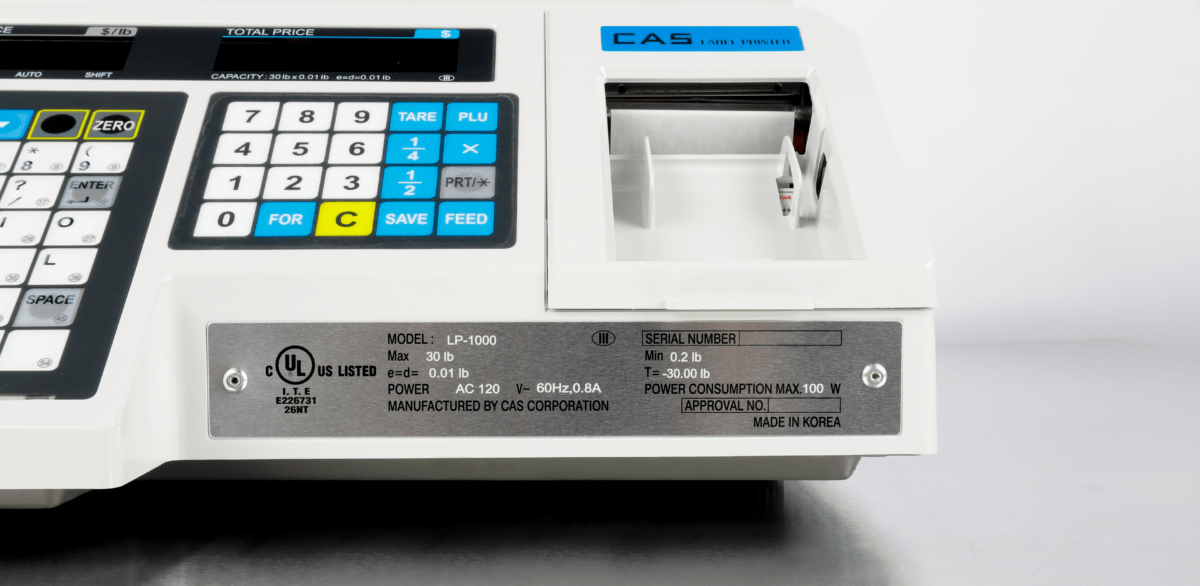
WHAT DOES “LEGAL FOR TRADE” MEAN?
Alright, first things first with a topic as extensive as this. Let’s tackle the terminology so we’re all on the same page.
What does the term “legal for trade” actually mean?
Legal for trade refers to equipment that has undergone extensive testing to guarantee it’s accurate for the purpose of weighing products. This equipment is intended for applications and transactions in commercial industries.
Basically, any business that sells goods by weight is legally required to have verified weighing equipment. When it comes to equipment like scales, this includes:
- Grocery stores or supermarkets
- Bakeries
- Delis
- Butcheries or meat markets
- Farmer’s markets
- Meat & poultry packing facilities
But wait, who’s to say what’s actually considered legal for trade?
Who Controls Scale Certification?
Rules and regulations for industries dealing with weights and measurements are different all across the globe.
In the United States, there’s 2 organizations responsible for setting the standards of getting a scale certified: the NIST and the NCWM.
And each has its own specific role.
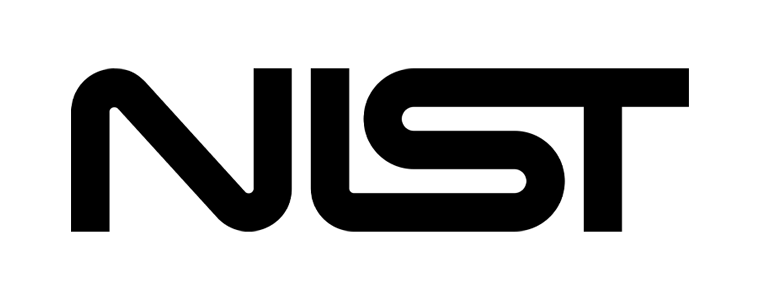
THE NIST
The NIST stands for National Institute of Standards and Technology. They’re a federal agency that works under the U.S. Department of Commerce. They’re responsible for developing and maintaining national standards for measurement.
Within the NIST is the Office of Weights and Measures (OWM). This is a specific program that promotes a cohesive system of weights and measures laws, regulations, and standards to ensure fairness between consumers and sellers.
The OWM also conducts research and provides training and education on measurement science and technology.
So where can all of these standards be found?
The NIST has published them in a collection of handbooks. For scales, NIST Handbook 44 is specific for evaluating and verifying the accuracy of weighing and measuring equipment.
However, it’s worth noting that the NIST is only responsible for creating the rules and regulations associated with scale approval, not implementing it.
The organization that enforces these rules is called the NCWM.
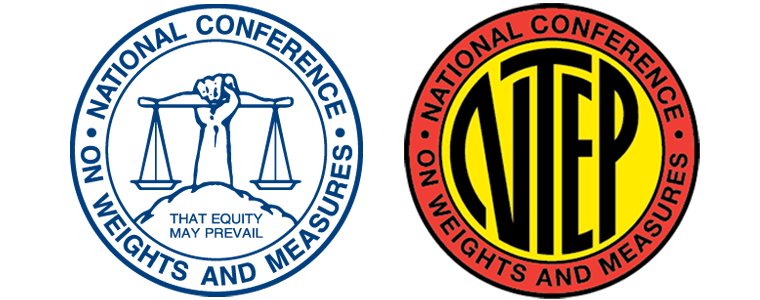
THE NCWM
The NCWM stands for the National Conference of Weights and Measures. They’re a not-for-profit organization that’s comprised of state and local weights and measures officials and representatives.
The NCWM is responsible for developing national weights and measures standards, which help maintain model regulations that are then adopted by individual states and localities.
The standards they set help promote both fair competition and regularity in scale readings as well as regularity in scale readings.
The NCWM is also responsible for administering an evaluation program that determines the performance of scales for trade approval and certification. They adopted standards published in the NIST Handbook 44 to create a single program that is recognized in all states.
When a scale device successfully completes this program, it receives a National Type Evaluation Program (NTEP) Certificate of Conformance (CC) number – we’ll touch more on this in a bit!
If you’re interested in learning more about these standards, you can find them located on the NCWM website here.
However, it’s important to note that the guidelines by these two organizations are only maintained in the United States. Other countries have their own standards and agencies, like EURAMET for Europe and Measurement Canada for Canada.
So that covers the who behind scale certification. But why are all of these standards even necessary?
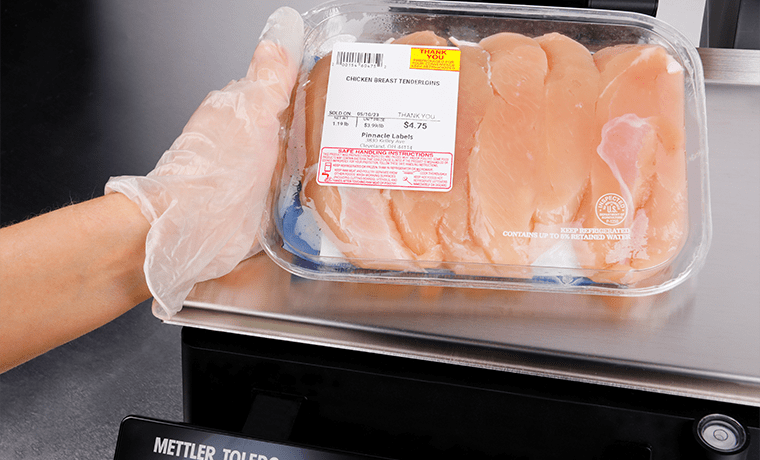
WHY DOES MY SCALE NEED TO BE CERTIFIED?
Like any industry following rules and regulations, there’s always an important reason behind why they’re in place.
For scales, being certified as legal for trade comes with benefits not available to non legal for trade scales.
Some of these include:
- Accuracy – An accurate scale is able to give precise readings on products to determine an overall fair price on commercial transactions.
- Fairness – Ensuring fairness between buyers and sellers means that buyers get what they pay for and sellers get fair payment for their goods and services.
- Legal Compliance – Businesses that are in legal compliance adhere to rules and regulations in place by government associations and avoid legal repercussions.
- Consumer Protection – Proper certification protects the rights of consumers and helps prevent crimes like fraud from occurring.
All of this is relevant to scales in commercial settings where products are sold by weight. Because if your business is operating without a legal for trade scale, there can be some serious consequences, such as:
- Heavy fines, fees or penalties
- Legal action
- Seizure of the illegal scale
- Shutdown of your business
Needless to say, obtaining a certified scale is a crucial step in being compliant.
So when it comes to searching the marketplace for a legal trade scale, what exactly do you need to be on the lookout for?
HOW DO I GET A LEGAL FOR TRADE SCALE?
There’s a 2 step process when it comes to getting a legal for trade scale: buy a certified scale and get it verified.
Like previously mentioned, a NTEP approved trade scale receives a valid Certificate of Conformance (CC) number. You can find the CC number either on a metal plate or tag on the scale itself, along with the make, model, and capacity information, or on the certificate document.
This number is like a gold star. It signifies the equipment has been manufactured to meet the legal requirements for commercial use.
And it’s one of the key indicators that you’ll want to look for when purchasing a legal for trade scale. A seller’s web page will display a NTEP approved image or text on any legal for trade scales.
Another factor that is a good indicator of a scale being trade approved is class accuracy. This can be found on the serial plate located on the scale.
Trade scale certification relies on accuracy class standards, which falls under 4 different categories and can also be found in the NIST Handbook 44.
Each class indicates the maximum error the scale is allowed when weighing items, given as a percentage of the weight being measured. Legal for trade scales intended for commercial use, like scales, are certified under class III or III L.
But this is only one piece of the puzzle. For your scale to truly be considered legal for trade, it also must be verified.
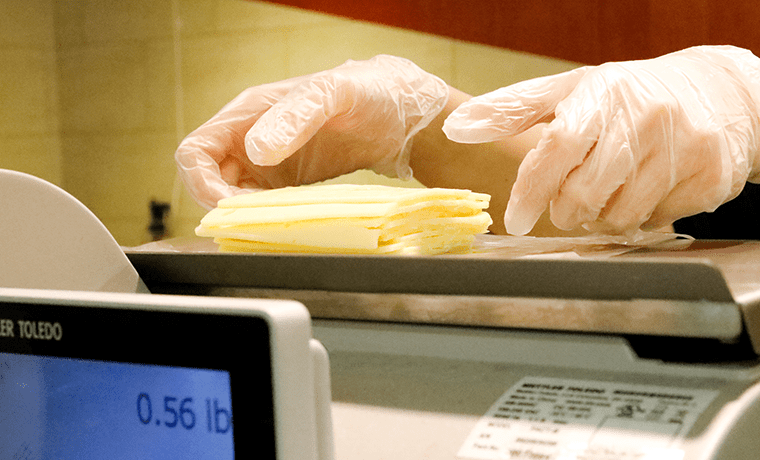
HOW DO I GET MY SCALE VERIFIED?
After obtaining a NTEP approved scale, it is crucial to then get it inspected and verified.
It’s the responsibility of the buyer to make sure all of the legal requirements are met with their scale equipment. Because verification requirements vary by each state, you’ll need to contact your local weights and measures department.
An appointment is made with a weights and measures inspector, who will visit your business to check your scale before officially verifying it. This includes:
- Checking for a valid certification mark
- Checking accuracy and functionality
- Performing adjustments or calibrations
- Ensuring it meets all legal requirements
After your scale has been tested and found to be accurate, the inspector will affix it with either an official approval or security seal (or sometimes both!).
These seals signify that the device has been officially inspected by a Weights and Measures Bureau official and is ready to be placed in service. They are adjusted by inspectors at each new verification appointment.
That’s right, scale verification isn’t a one time thing.
The NIST recommends that equipment for commercial use undergoes regular inspections. This could be yearly or more frequently, depending on how often your scale is used.
Some states will even require unannounced inspections to make sure your equipment still meets the necessary legal requirements and has not been modified or tampered with.
NOW YOU KNOW!
Well, that was certainly a lot of information to take in! But now you’re a little more familiar with the rules and regulations involved in certifying legal for trade scales.
Yes, knowing this information and keeping up with certifications and verifications can be tedious work, but it’s absolutely necessary for your commercial business to stay compliant.
If you’re looking for more detailed information on the organizations or legalities involved with getting your scale certified, check out some of the links in this article.
In need of scale labels for your scale printer? Shop Pinnaclelabels.com for a wide variety of scale label sizes and preprints to help meet your business needs. Have questions? Give our team a call at 800-955-5555 or email us at info@pinnaclelabels.com.
